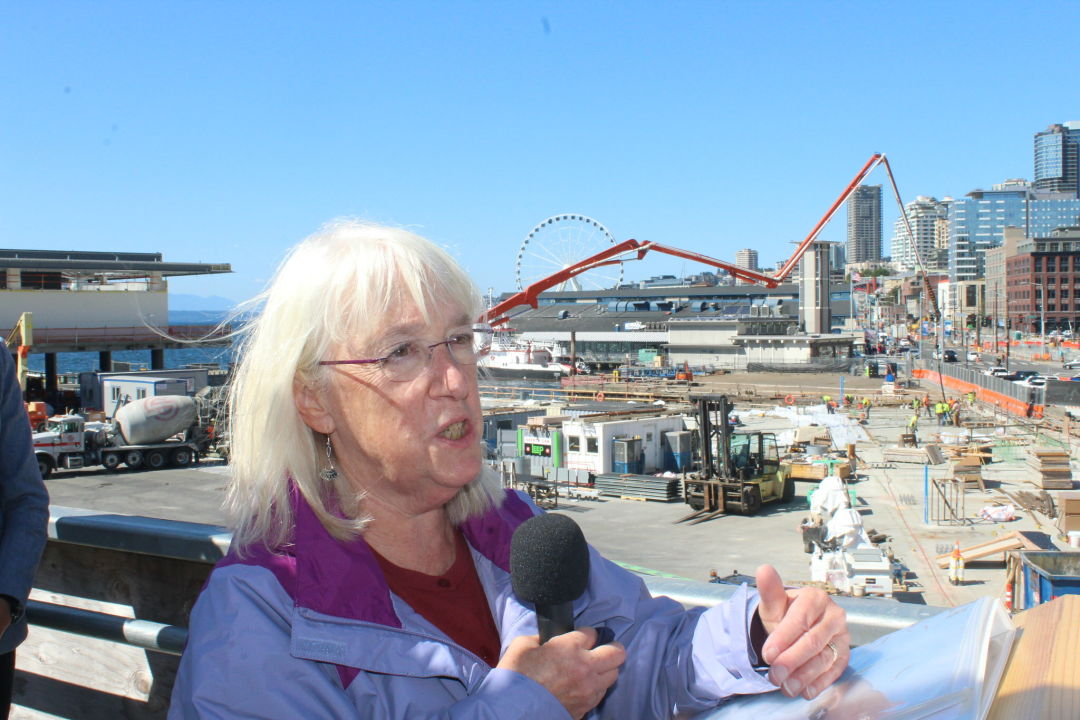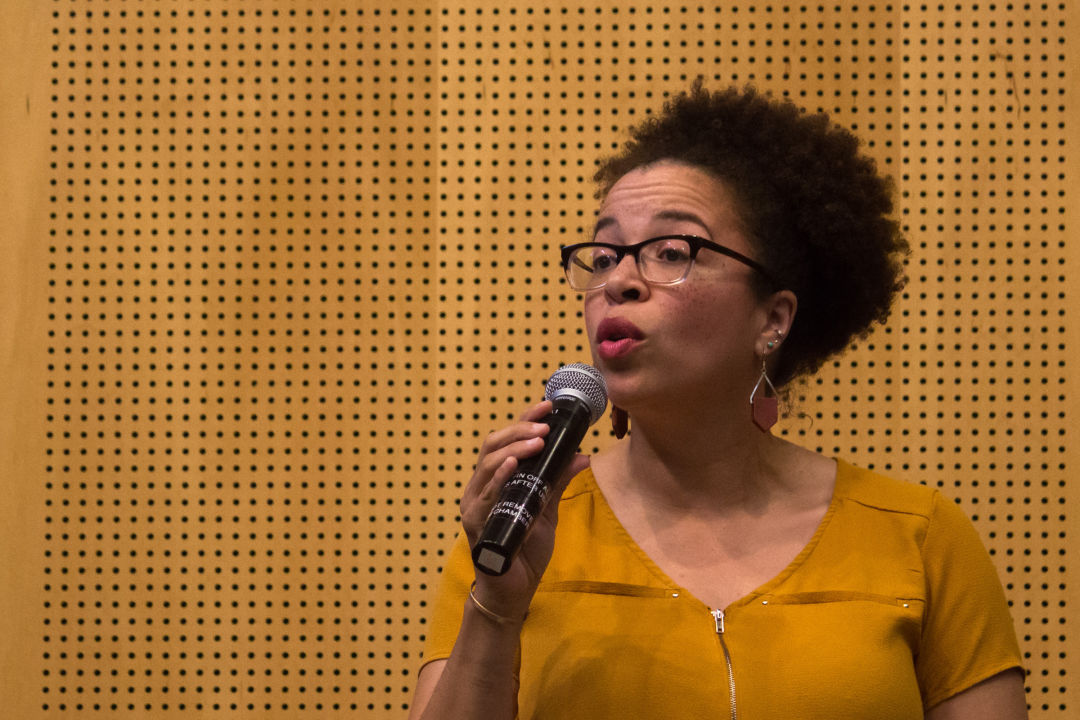Three Plotlines to Follow in Washington State’s Midterm Elections

Image: Seattle Met Composite and courtesy the candidates
Washington didn’t need a nudge to get politically involved between presidential elections. Though we may be a deeply divided state, most of us historically turn out for midterms.
But a leaked draft opinion on Roe v. Wade in early May was yet another reminder, for the apathetic few, that political complacency is not an option. Directly or indirectly, decisions made by elected leaders in that other Washington can lead to literal bans on bodies. And this Washington’s protection of abortion rights is only as strong as a pro-choice advantage in the state legislature.
That upper hand will be tested again this year—first on August 2 in the state primary, then on November 8 in the general election. Some departures from state government have set the stage for potential upheaval in Olympia, while a couple of showdowns for U.S. Senate and House seats in Washington may garner national attention by the time fall rolls around.
These are the Washington storylines to track in the run-up to midterms.
Can Tiffany Smiley Actually Challenge Patty Murray?
It’s not every election season we have a local U.S. Senate race to watch, let alone one that’s not a total snooze. This year’s is genuinely compelling, as a Republican from Pasco is making a serious run to unseat a five-term Democratic incumbent. Early polling favors Murray, to be clear. But not as decidedly as one might expect in a state that hasn’t elected a GOP senator since Slade Gorton in 1994. One prominent national crystal ball has downgraded Washington from a “safe” bet to go blue to just “likely.” Any further slip would be cause for panic on the left.
Who’s the threat? Smiley is—stop me if you’ve heard this before—an outsider candidate. The “farm girl” and former triage nurse from rural Washington has never run for public office. She’s instead built her political capital, and a burgeoning war chest, while advocating for veterans rights on a local and national level; her husband and high school sweetheart, Scotty, was permanently blinded while serving in Iraq, and her subsequent fight for his care sounds like a Netflix drama waiting to happen. The state’s Republican Party chair, Caleb Heimlich, told The Seattle Times that she’s “the most credible, and best financed challenger we have had running for U.S. Senate in a long time.” Translation: She’s not donning a MAGA hat everywhere, and she’s raised some money.
Murray, meanwhile, may have to find a different campaign talking point than the “mom in tennis shoes” story to defeat a mother of three. That shouldn’t be too tricky—if things stay tight, expect the Women’s Health Protection Act supporter to rebuke Smiley’s reported stance on abortion (against) and her take on the country’s election integrity (lacking). On the offensive, the chair of the Senate Health, Education, Labor, and Pensions Committee can point to state pandemic relief as a recent coup. The former preschool teacher with her own military ties can also tout her repeated calls for child care expansion over her three decades in office.

Patty Murray visits Colman Dock in 2021 to promote federal infrastructure funding.
Image: Courtesy WSDOT
Smiley hasn’t shied away from citing her opponent’s experience in the political sphere as a negative, noting that she was just 11 years old when the Bothell-raised politician took office. That longevity carries weight in the Senate, where Murray is now the third-ranking Democrat. How much will it hold with voters? Stay tuned.
Will Redistricting Eliminate or Widen Kim Schrier’s Edge in the Eighth?
Every U.S. House seat is up for grabs come midterms. Unlike Oregon, the latest Census did not yield Washington any more representation in Congress—we’re stuck at 10 reps. But the decennial population count certainly altered our local political maps.
Following a redistricting process that did not exactly inspire confidence, the voting district jigsaws look a bit different this election cycle. At the congressional level, the changes aren’t expected to threaten incumbents much, with one potential exception.
The Eighth District was a swing territory before the redistricting committee took a red pen to its bounds last year. Now its nascent status as blue country—Democrat Kim Schrier has won the past two elections—is in jeopardy as one of its new borders stretches deeper into King and Snohomish counties.

Dr. Kim Schrier's triumph in the 2018 midterms swung a red district blue.
Whether that redrawing of the map is good or bad for Schrier’s prospects remains to be seen. Redistricting has fashioned one more local congressional area a dark shade of blue, but the Eighth may be leaning less to the left now. National prognosticators place the district firmly in “toss-up” territory.
Schrier, a pediatrician from Sammamish, knows she’s in for a fight. With whom, exactly, is still an open question. Republican combat veteran Jesse Jensen, who lost narrowly to Schrier in 2020, is vying again for the position. King County Council member Reagan Dunn has also entered his name and taken a sharper turn to the right.
No matter who finishes in the top two in the August primary, expect the same debates from the Senate race to animate this one. You can bet the country will be watching; Democrats’ tenuous House majority may depend on it.
How Will a Mass Exodus in Olympia Shake Up the Legislature?
The bigwigs vying for seats in DC shouldn’t hog all of the midterms attention, especially since blue staters can only do so much to protect bodies in other states. And there’s plenty to keep an eye on in Olympia, where nearly two dozen lawmakers are set to vacate their seats as every House seat (and a bunch of Senate positions) are up for grabs.
Some of these politicians are retiring. Others are seeking higher office. But more than a couple have called out systemic problems with the governing body that point to a major rift at the state Capitol.
The bow-out of Kirsten Harris-Talley was a warning bell. The representative for the 37th Legislative District, which includes a large chunk of Seattle, was elected for the first time just two years ago. As a progressive proponent of affordable housing, restorative justice, and defunding the police, Harris-Talley’s arrival in Olympia was hailed as a sign that activists were gaining clout at the stodgy state level.

Kirsten Harris-Talley won't seek a second term in the 37th.
But along with state senator Mona Das and representative Jesse Johnson, Harris-Talley has stressed the strain on families and finances that makes a role in the state legislature more accessible to affluent candidates. Harris-Talley, who is Black and queer, also felt othered by a caucus that preaches inclusion. “You find that when you ask an unpopular question: It is dismissed. Or ignored,” she wrote in a piece for the South Seattle Emerald. “When you do what you would do with the tools you have, you are cautioned that ‘we don’t do it that way here.’”
In the absence of these legislators and others, we’re left to wonder: Who will take their place?




